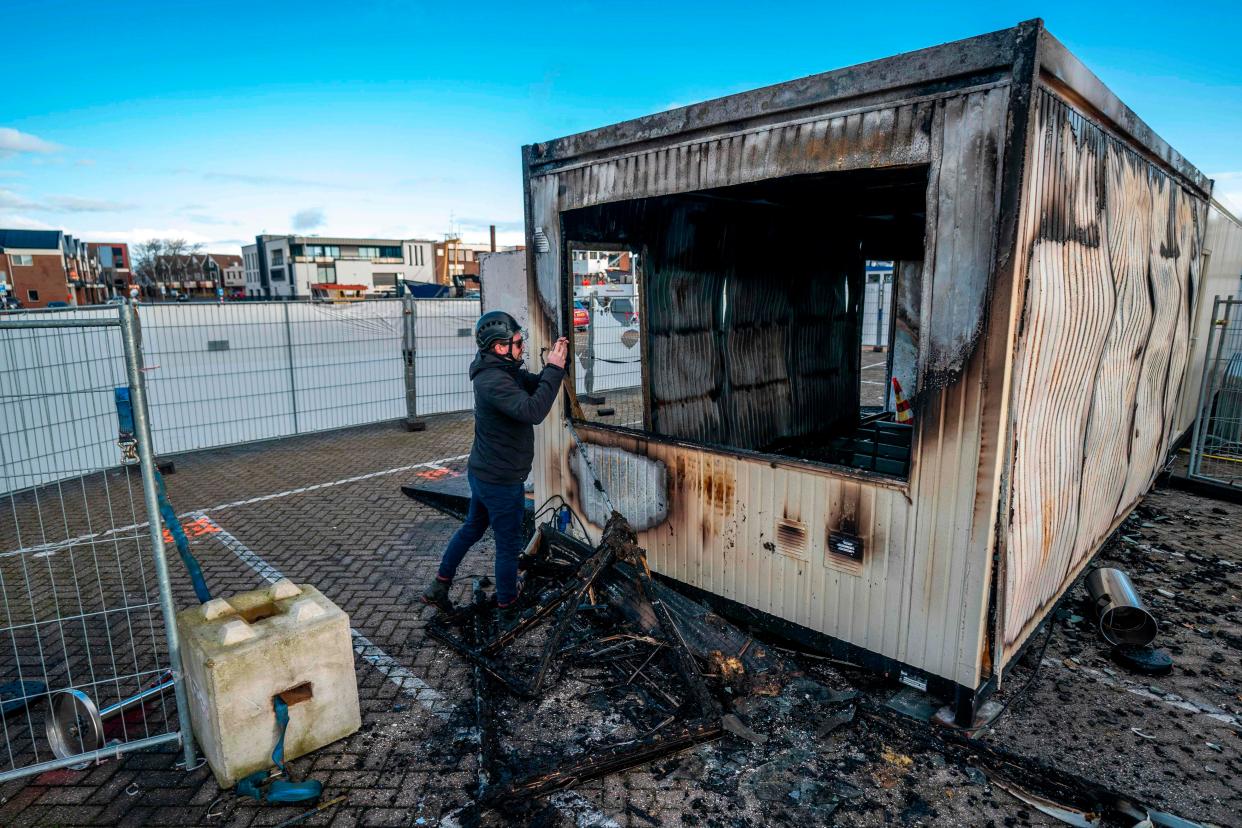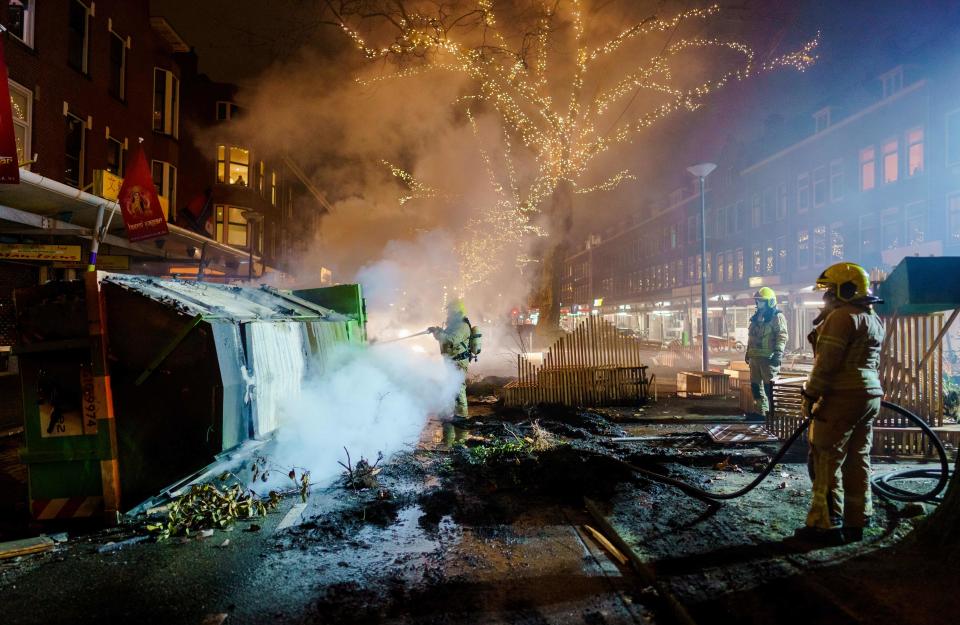‘A terrible explosion of violence’: Fear and revolt spreads in the Netherlands

Residents in the Dutch port town of Urk woke up on Sunday to find their coronavirus testing centre in ruins, scorched by rioters the previous night.
This arson attack proved not to be a one-off incident. In towns and cities across the Netherlands, police have scrambled to contain violent protests that erupted on Saturday, when the country’s latest coronavirus measure - the first curfew since the Second World War - came into effect. The restriction prohibits citizens from being outside from 9pm until 4.30am each day.
The violence shows no sign of abating. Instead, it is spreading, taking in the country’s major cities and potentially exposing fault lines in Dutch society which may go far beyond rejection of the latest lockdown rules.
On Monday, ten police officers were injured in Rotterdam and more than 150 people were detained nationwide on the third successive evening of clashes.
The police have described the scenes as the “worst rioting in 40 years”, while prime minister Mark Rutte said the “criminal violence” was “unacceptable”. To cope with the threat, some city mayors, including Ahmed Aboutaleb, who runs Rotterdam, have declared emergency measures.
Describing the events as unprecedented, Mr Aboutaleb told Dutch public broadcasterNOS: “I had to threaten to use tear gas, which is a far reaching measure… and something I have never had to do in my career as mayor.” He also spoke out against looters, whom he described as “shameless thieves”.
Samir Hadher, the owner of Jewelry Box, a shop in Rotterdam, knows from experience how devastating riots can be.
He was at home on Monday night when his store’s security cameras alerted him to a break-in. Told by police that he should not confront the thieves for his own safety, all he could do was watch as the looters smashed their way through its glass windows and made off with “watches, jewellery, silver and gold”.
“We are in shock - it’s really hard for us. We still don’t know how much we’ve lost. You can only see glass everywhere,” Mr Hadher tells The Independent the following day.
He thinks the riots are more than just the bubbling up of lockdown frustration, alleging that an organised group was behind the burglary. As a result of the damage, he has decided to keep his shop closed for the foreseeable future, perhaps even after repairs are complete.
Speaking of those who robbed his shop, Mr Hadher adds: “It is hard for these people to understand that we have to fight against the virus and not each other.”
Over in Amsterdam, Reinier van Dantzig, the city chairman of the social-liberal party D66, believes the “terrible explosion of violence” seen in recent days has been caused by young people who lack chances and “have no good place to go with their frustrations”.
Social unrest in the Netherlands has been building over the past few years due to growing discimination and also inequality, according to Mr van Dantzig, who blames the “lack of moral leadership” for the current problem.
To him, it will be hard to “put the genie back in the bottle” unless the underlying problems faced by young people are addressed. In the short time, he says this will involve opening schools, which have been closed since December, and also sports facilities like gyms and football pitches. To achieve this, he adds that Holland, the last country in the EU to begin immunising its citizens against Covid-19, must speed up its vaccination scheme.
In the longer-term interests of the country though, Mr van Dantzig argues that the government needs “to start a dialogue with the youth about their problems and not simply state that this [the violence] is unacceptable - which it is”.
So far, ministers and politicians have simply responded with strongly worded statements condemning the violence. "Until now, looting shops was always something that happened in other countries. Not here. Not in the Netherlands,” tweeted the Christian Democratic Appeal (CDA) politician Wytske Postma.
In a sterner rebuke, the defence minister Wopke Hoekstra described the rioters as “scum”, adding that the government would not give in to their demands to lift the curfew.
Henk Ferwerda, a criminologist who heads the Bureau Beke research institute, gives a more nuanced view of the rioters. “Virus deniers, politically motivated people and types who saw an opportunity to go crazy came together. The groups mix and then the police can't tell them apart. So innocent victims will also fall in the police action,” he told the broadcaster NOS.

For his part, Mr van Dantzig is worried that the police, despite their best efforts, might struggle to control the riots if they continue for much longer, explaining that the size of Holland’s police force does not lend itself to riot control.
"The police are very professional in trying to keep things calm. However, the Netherlands is far from a state with lots of police. We're founded on community policing and in Amsterdam we have about 5,000 cops, which isn't that much for a city of its size,” he says.
The Netherland’s curfew, which narrowly passed through parliament last week, is scheduled to last until at least the morning of 10 February in a bid to drive down coronavirus infection rates and to keep the British variant, which has been found in Holland, at bay.
The country has recorded 966,194 Covid-19 infections and 13,686 deaths since the pandemic began.
Read More
More than 150 arrests as Netherlands curfew unrest continues

